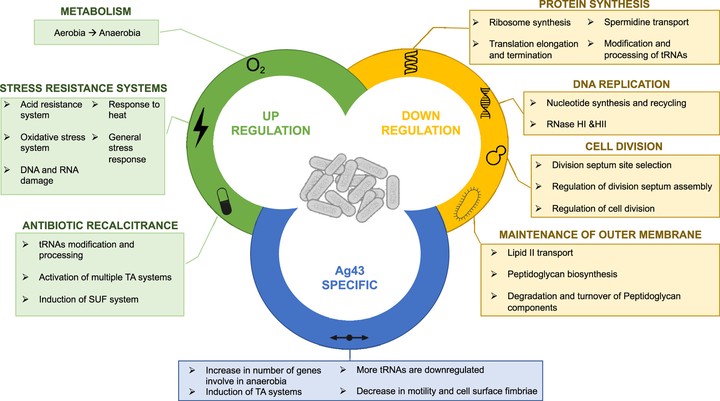Escherichia coli aggregates mediated by native or synthetic adhesins exhibit both core and adhesin-specific transcriptional responses

Abstract
Bacteria can rapidly tune their physiology and metabolism to adapt to environmental fluctuations. In particular, they can adapt their lifestyle to the close proximity of other bacteria or the presence of different surfaces. However, whether these interactions trigger transcriptomic responses is poorly understood. We used a specific setup of E. coli strains expressing native or synthetic adhesins mediating bacterial aggregation to study the transcriptomic changes of aggregated compared to nonaggregated bacteria. Our results show that, following aggregation, bacteria exhibit a core response independent of the adhesin type, with differential expression of 56.9% of the coding genome, including genes involved in stress response and anaerobic lifestyle. Moreover, when aggregates were formed via a naturally expressed E. coli adhesin (antigen 43), the transcriptomic response of the bacteria was more exaggerated than that of aggregates formed via a synthetic adhesin. This suggests that the response to aggregation induced by native E. coli adhesins could have been finely tuned during bacterial evolution. Our study therefore provides insights into the effect of self-interaction in bacteria and allows a better understanding of why bacterial aggregates exhibit increased stress tolerance.
Chekli, Y., Stevick, R. J., Kornobis, E., Briolat, V., Ghigo, J. M., & Beloin, C. (2023). Escherichia coli aggregates mediated by native or synthetic adhesins exhibit both core and adhesin-specific transcriptional responses. Microbiology Spectrum, e00690-23. doi:10.1128/spectrum.00690-23